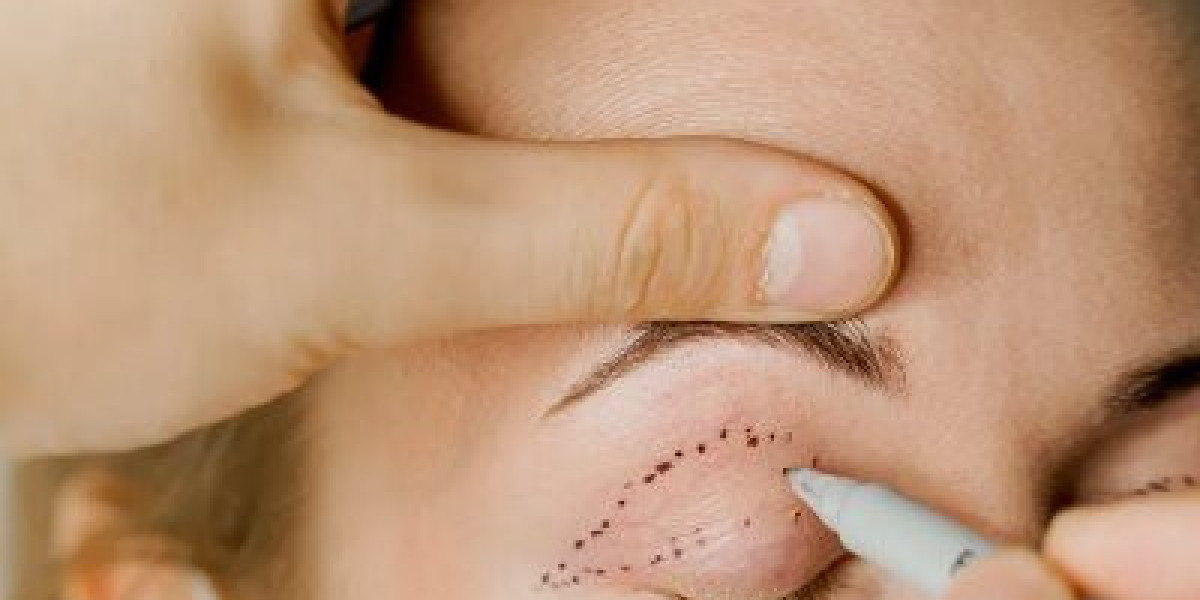Eyelid surgery, or blepharoplasty, is a popular cosmetic procedure that helps rejuvenate and enhance the appearance of the eyes by reducing sagging skin, wrinkles, and puffiness. Whether for functional or cosmetic reasons, many people in Oman choose this Eyelid Surgery in Oman to achieve a refreshed and youthful look. However, as with any cosmetic enhancement, adjusting to your new appearance may require time and support. Here, we explore what to expect, practical tips for coping, and the psychological impact of this change.
Understanding Eyelid Surgery and Its Benefits
Blepharoplasty is designed to improve the appearance of the upper and lower eyelids by removing excess skin, fat, and sometimes muscle. This procedure can address concerns such as droopy upper eyelids that may obstruct vision, bags under the eyes, or general eye-area fatigue. For many, eyelid surgery brings benefits that go beyond physical appearance, such as improved vision, boosted self-confidence, and reduced signs of aging.
Common Reasons for Eyelid Surgery
- Aesthetic Improvement: Many seek blepharoplasty to rejuvenate their appearance, often feeling that it makes them look younger and more alert.
- Functional Enhancement: Some patients experience improved eyesight by reducing sagging skin that obstructs their field of view.
- Cultural and Social Preferences: In regions like Oman, where appearance can be significant in social contexts, eyelid surgery is sometimes considered to enhance one’s facial harmony.
Preparing for Eyelid Surgery: Emotional and Physical Readiness
Preparing for surgery involves both physical and emotional aspects. Understanding the procedure, its effects, and recovery stages is crucial.
Pre-Surgery Steps for Success
- Research and Consultation: Consulting with a certified surgeon in Oman is the first step to fully understanding the surgery.
- Physical Preparation: Doctors typically recommend stopping smoking and avoiding certain medications before surgery to promote healing.
- Emotional Preparation: Since any surgery can impact your self-image, preparing mentally is essential. Discuss expectations and concerns openly with your doctor.
Coping with Changes After Eyelid Surgery
The post-surgery recovery phase includes both physical healing and emotional adjustment. Understanding what to expect can make this process smoother.
Immediate Post-Surgery Recovery
- Swelling and Bruising: Expect swelling and bruising around the eye area for several days post-surgery. This is normal and temporary.
- Pain and Discomfort: Mild pain and irritation are common in the initial days but can be managed with prescribed pain medication.
- Self-Care Tips: Applying cold compresses, keeping your head elevated, and using prescribed ointments can aid in reducing discomfort and promoting healing.
Long-Term Adjustment and Adaptation
Adapting to a new look can take time. At first, some may find it challenging to accept the changes, even if they are subtle. However, as the swelling subsides and the final results emerge, most patients adjust well and become more satisfied with their appearance.
Managing Emotional Reactions and Building Confidence
It is common to experience mixed emotions after cosmetic surgery. Here are some strategies to help with emotional adaptation:
Embrace the Change Gradually
- Patience is Key: The final results of eyelid surgery may take several weeks or even months to become fully apparent.
- Avoid Constant Comparisons: Resist the urge to compare your appearance before and after surgery excessively, as this can lead to unrealistic expectations.
Seek Support from Loved Ones
- Involve Family and Friends: Having supportive people around can help ease the transition and encourage you to feel positive about your new look.
- Connect with Others Who Have Had the Surgery: Speaking with others who have undergone similar procedures can provide comfort and reassurance.
Dealing with External Reactions and Social Interactions
After eyelid surgery, some people may be curious about your appearance. Handling external reactions with confidence can help ease any self-consciousness you may feel.
Managing Social Situations Post-Surgery
- Plan Your Return to Social Activities: Take your time before returning to regular social interactions, especially if you feel self-conscious about post-surgical bruising or swelling.
- Responding to Comments: Some people may ask questions or make comments about your appearance. Prepare polite and positive responses in advance to handle such situations confidently.
Focus on Self-Confidence and Acceptance
Ultimately, the way you feel about yourself matters most. Cultivate a sense of self-confidence by remembering the reasons you chose to undergo the procedure and focusing on how the changes align with your goals.
Adjusting to Your New Look in the Long Term
In the weeks following your surgery, you may notice gradual changes as your eyelids heal and the final results take shape.
Self-Care for Sustained Results
- Follow Your Surgeon’s Advice: Sticking to your post-operative care routine, including any recommended skincare practices, will help you maintain optimal results.
- Maintain a Healthy Lifestyle: A balanced diet, proper hydration, and adequate sleep support your body’s healing and keep your skin healthy.
Embracing the New You
Every person’s response to cosmetic surgery is unique. With time, most patients come to enjoy and appreciate the results, finding that the improved appearance aligns well with their self-image and goals.
Finding the Right Support in Oman
For those considering eyelid surgery in Oman, finding a certified surgeon who understands your unique needs is essential. Researching reputable clinics and reading patient testimonials can offer reassurance and guide your decision. Remember, cosmetic surgery is a personal choice, and each step—from preparation to recovery—is a journey toward feeling your best self.








